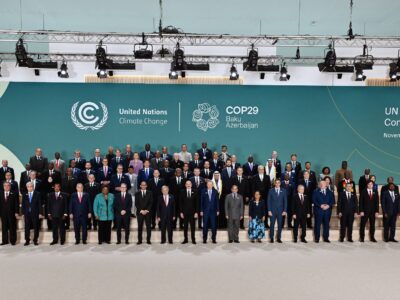25-09-2024
Stella Liantsi
South and East Asia Researcher,
Global Human Rights Defence.
An important step in international climate litigation occurred on August 29th, 2024 when the Constitutional Court of Korea declared parts of the Carbon Neutrality Act unconstitutional marking a historic verdict. The Court decided that the Act failed to set greenhouse gas (GHG) reduction targets beyond 2030, effectively passing the burden of climate action to future generations.
A coalition of young climate activists, including members of the youth environmental group “Youth 4 Climate Action” filed the first lawsuit in March 2020. Their argument was that the present law which calls for a 40 percent decrease in GHG emissions by 2030 compared to 2018 did not go far enough in safeguarding their and future generations’ environmental rights. Three more lawsuits were subsequently filed and consolidated, increasing the total number of claimants to 225. The plaintiffs’ diverse age range – which included children, babies, and even a foetus at the time of filing – emphasised how climate policy will affect future generations in the long run.
Four years of legal battles come to an end with the unanimous decision which also establishes a major precedent for future climate-related lawsuits. It is important to note that the Court did not find the whole of the 2030 Nationally Determined Contribution (NDC) to be unconstitutional. This is due to the fact that it recognised that both the legislative and executive branches have considerable latitude in setting specific climate reduction objectives for 2023. The main issue was that, from 2031 to 2049, there was no legal structure in place to set these objectives. Owing to this legal void, the Court ordered the administration and the National Assembly to amend the legislation and include these long-term goals by February 28th, 2026.
In light of the Court’s decision, the South Korean government is now required to develop an open, empirically-based strategy for attaining carbon neutrality by 2050. This most likely entails setting more aggressive goals in line with each country’s portion of the global responsibility to slow down climate change.
Although the plaintiffs and environmental activists saw the decision as a victory, they pointed out that this was just the beginning. Since the climate crisis has a significant influence on their life and there is no time to delay it, they expect that this shift will lead to broader improvements. The decision highlights the judiciary’s growing recognition of fundamental rights in the context of climate change, signalling its importance beyond politics or environmentalism.
Sources and further readings:
Phillips, B. (2024, September 16). South Korean Constitutional Court Ruling: A Landmark Decision in Climate Litigation. International IDEA. Retrieved September 21, 2024, from https://www.idea.int/news/south-korean-constitutional-court-ruling-landmark-decision-climate-litigation
Rashid, R. (2024, August 29). South Korea’s climate law violates rights of future generations, court rules. The Guardian. Retrieved September 21, 2024, from https://www.theguardian.com/world/article/2024/aug/29/south-korea-court-climate-law-violates-rights-future-generations








Comments